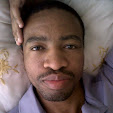The year 2010 was ending on a high note, a successful hosting of the World Cup in South Africa, the usual circus had not come to town, and 2010 was going to be a relatively peaceful year without major incidents to ogle. November 2010 caught everyone unawares; nobody thought the melee we are seeing in Ivory Coast could be a possibility. Perhaps Laurent Koudou Gbagbo did not see it coming, maybe everything pointed to a victory for him. After a round of votes, he saw himself going into another round of elections.
The second round of the presidential vote saw Gbagbo square off with Alassane Ouattara to determine the winner of the vote, going into this round of voting Gbagbo had garnered 1,756,504 against Alassane Ouattara’s 1,481,091. However there was another candidate who was in third spot Henri Konan Bédié had managed to get 1,165,532. The fact that he was not going to participate in the second round meant that whoever would secure votes from his supporters would likely emerge as the eventual winner and sworn in as president. After some consideration Bédié chose to back Alassane Ouattara effectively handing victory to Ouattara. Though it can be disputed that voters have a right to vote whoever they want, a call to back one candidate over another is as good as rallying the followers to do likewise. So this is where Mr. Gbagbo found himself on the losing side, with the IEC barred from releasing results showing Ouattara victory, then the Constitutional Council annulling some votes as fraudulent swinging the victory to Gbagbo’s side.
It is evident that there was underhand dealing in as far as the Constitutional Council was concerned, perhaps conniving to keep Gbagbo in office. The world moved to denounce the action of Mr. Gbagbo refusing to hand over power, ECOWAS, UN, AU all backed Ouattara as the legitimate president, Kenya Prime Minister Raila Odinga called on AU to use force to remove Gbagbo. But apart from this outside criticism nothing has changed, bodies continue to pile up as a result of the post election tension. Though it is worthy of note that the African Union did not fold its arms as before, it is bad that precedent was allowed to set in starting with Kenya, then Zimbabwe. It’s the new African way; a sitting head of state loses an election and refuses to go, only to enjoy power through power sharing deals. It is bad that Thabo Mbeki was asked to help the situation in Ivory Coast, we hope that by the time he is reaching some form of normality it won’t be time for another election.
Dialogue is not the best option when dealing with leaders who have dictatorial tendencies, perhaps Raila Odinga’s option was worth exploring, arrange for a peace force composing of AU and UN who would ensure the right thing is done in Ivory Coast. 2011 will come and the stalemate will still be there, bodies will be piling up on the streets and quiet diplomacy will be conspicuous by its absence and lack of palpable move to normalize the situation. In 2011 there will be another election in Zambia & Zimbabwe, even though the Zimbabwean one is not yet a certainty. If anything goes wrong there then SADC and AU will find themselves with their hands full. They have already accommodated dictators so undoing their cosy relationship will come at a high cost.
Zimbabwe is a particular concern, Mugabe has already shown signs of wanting to hold on to power through the backdoor, what with the top men in uniform also willing parties to the grand theft, the situation is volatile. In the Ivorian election, the sitting president lost the diaspora vote. Currently the South African government is busy with issuing documentation to Zimbabweans to make them obtain legal status; this has led to many previously undocumented Zimbabweans congesting the Zimbabwe Consular office to get documents. It is likely that Zimbabwean elections will take place after a new constitution has been approved through a referendum, the question of diaspora votes is likely to determine who gets to be the next president, could the Zimbabwean government’s dragging of feet to issue documentation be informed by an inherent fear that the diaspora community will side with the opposition? The South African government noted they can help if requested with printing passports but have not been approached to do so. Whatever happens between now and when the election in Zimbabwe must ensure that conditions have been created that do not allow the incumbent to cling to power. Perhaps having worked with the opposition in a coalition government, ZANU-PF might have made bridges of trust with those in MDC. Still a much tougher stance must be devised as a deterrent to stealing one’s way into power, dictators care nothing about belonging to groups such as SADC, ECOWAS, AU. It is high time Africa considers more harsh measures to stem the scourge of refusing to relinquish power.
Those whom you love you chastise so the African brotherhood must be seen to be doing more, till then we will pray and hope those in the corridors of power will move swiftly to stem the loss of lives going on in Ivory Coast, we have to resolve issues on our own as Africans, taking a cue from US, EU and UN will only show that we are in tacit collusion with those abusing power and stealing their way into office.
